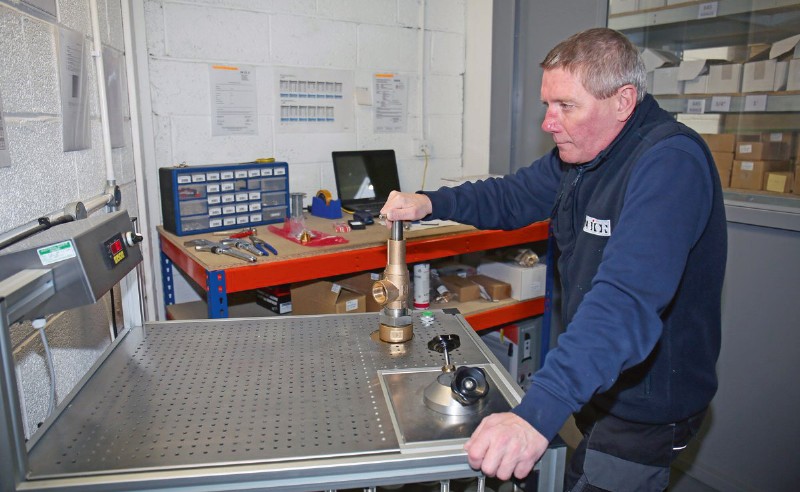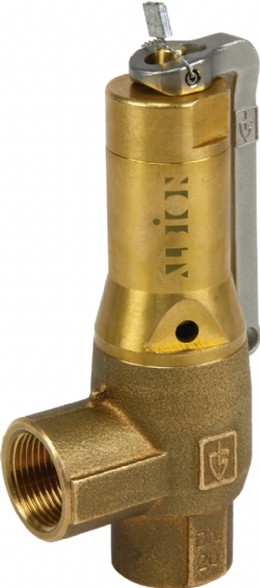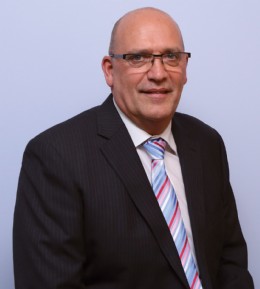Les Littlewood, Sales Director of Albion Valves (UK) Ltd, discusses how choosing the right kit can boost safety in industrial workplaces…



Les Littlewood, Sales Director of Albion Valves
Les Littlewood, Sales Director of Albion Valves (UK) Ltd welcomes the increased focus that SAFed has brought to this area and believes the new guidelines bring more clarity and deeper understanding to operations.
It is a well-known and sobering fact that industries such as industrial processing and manufacturing, along with construction suffer the highest occurrences of workplace injuries and fatalities.
However, by adhering to a few simple steps it is possible that selecting the appropriate parts and not cutting corners can help avoid catastrophic risks associated with using the wrong valve for overpressure protection.
Although there has been improvement in health and safety at work, more can be done to help further reduce the number of incidents including ensuring the products specified are fit for purpose.
The SAFed guidelines address the issue of replacing valves in a highpressure system and make the case for getting it right first time. The guide focuses on areas such as optimal set pressure, discharge capacity of valves and design temperature of valves.
It also highlights the risks of using pressure relief valves instead of safety valves, a malpractice which has become increasing problematic in recent years.
Les commented: “There has been a lot of confusion in the industry regarding the appropriate technology to use in pressurized systems, with many contractors using pressure relief valves.
In a pressurized system both safety valves and pressure relief valves are used as the last safety device, however engineers need to be mindful that requirements can vary significantly from system to system, and increasingly valves must now meet the EU’s Pressure Equipment Directive (PED) to guarantee safety.
The guidelines will also help ensure that engineers are meeting their insurance conditions and not making false economies by sourcing cheaper and potentially unsuitable valves.”
To help promote safer working environments, specifiers should be vigilant and ensure they have the correct accreditations - be it ATEX or PED or by ensuring the valves are anti-static if the environment requires it.
The majority of Albion’s distributors have customers operating in workplaces, where explosive atmospheres are commonplace. This includes environments where industrial processes may release flammable gases or poisonous vapours.
As such, Albion has added a range of fire-safe, anti-static, stainless steel ball valves to its portfolio, designed to prevent the leakage of hazardous substances from the valve in the event of a fire.
Anti-static valves are suitable for installations within the pharmaceutical and petrochemical industries, as well as a variety of other industrial processes dealing with oil, gas and other flammable media, where there is an increased risk of explosion if substances leak during a fire.
The anti-static device fitted on the valve, ensures that friction caused by the operation of the valve does not cause a build-up of static, which could potentially spark and have disastrous consequences.
The API 607 standard, which certifies the valves as fire-safe, looks at the performance of valves by establishing limits of acceptable leakage when they are exposed to defined fire conditions.
Valves that meet the API STD 607 requirements should be able to retain the pipeline media long enough for the fire to be extinguished - to avoid fueling the fire further. Fire-safe valves are also required to be operational after exposure to fire in order to move from the ‘open’ to the ‘closed’ position.
Similarly, another industry safety net is ATEX. The ATEX certification mark is designed to minimize the risk of fire or explosion arising from the ignition of dangerous substances in the workplace.
The ATEX directive applies to electrical and mechanical equipment intended for use in potentially explosive atmospheres including; mines, factories, sewage plants, biomass processing, oil and gas distribution.
As SAFed recognizes, high-pressure systems operating above 0.5 bar pose a significant safety threat to engineers and industrial staff. In this instance pipework, valves and fittings are required to be compliant with the Pressure Equipment Directive (PED) to ensure the equipment is able to withstand pressure and prevent system’s bursting.
A common and potentially lethal occurrence in this situation is when relief valves are specified to do the job of a safety valve. Safety valves are the last line of defence in a pressure system, however engineers and specifiers need to be mindful that requirements can vary significantly from system to system.
In applications where PED is applicable, it is mandatory to use safety valves with the appropriate approvals. If a valve without type test approval is installed there is no guarantee that required blow-off at 10% would be reached, which poses a big safety risk.
Albion’s range of safety valves is based on a traditional model; they have been improved to bring them up to date with modern valve design and performance. They come with a unique 2-piece spindle to ensure they are safe and tamper-proof even if some form of external restraint has been applied.
Safety valves are all either set, sealed and certified by the factory, or onsite at Albion on a test rig prior to dispatch. Each valve is laser etched with its own unique serial number to allow certification to be traced.
Les added: “It is important to realise that the liability for using a nonconforming product rests with the installer, and that contractors can be in breach of insurance conditions by installing any non compliant parts. This is why Albion recommends using a certified safety valve wherever possible and making safety a priority.”
Tel: 01226 729 900
Email: sales@albionvalvesuk.com
Web: www.albionvalvesuk.com
Published: 23rd August 2018
Rachel Wormald, Managing Director at YPS Valves Ltd and Elizabeth Waterman, ...
Are you looking for industry-leading, brand independent valve and actuator ...
As can be seen from the photograph, clearly the resident birds at Bartlett ...
Howco Group has unveiled its latest £1million investment, with the ...
In 2024, Allvalves is poised for an exciting year of growth and expansion, ...
GMM Pfaudler Engineered Plastics & Gaskets are delighted to bring the ...
In the ever-evolving valve industry, GMM Pfaudler stands out for its ...
SAMSON Controls Ltd – part of the SAMSON group - a renowned leader in ...










